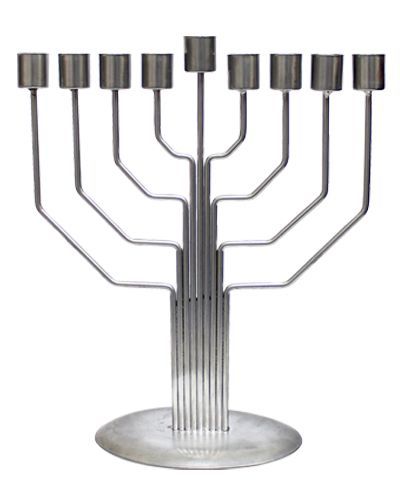
Wisdom’s Evil Neighbor
Even though the world admires cleverness, any so-called wisdom that fails to connect a person to Hashem is not wisdom at all, no matter what the world calls it...

The Gemara (tractate Bechorot, 8b) tells about an ancient debate between the wise men of Israel and the wise men of Greece. They argued about the length of the snake’s gestation period. The representative of the Jews was Rabbi Yehoshua ben Chanania, who claimed that a snake’s gestation period is seven years. The Greek wise men, the contemporary leaders of the world of academics and heresy, maintained that a snake gives birth within three years. When they displayed their researched proof to Rabbi Yehoshua ben Chanania, he said that their snake must have been pregnant already for four years when they began their research.
Rebbe Natan of Breslev, who waged an ideological war with the heretics of his day, revealed (see Likutei Halachot, Shabbat, Halacha 6) the intrinsic depth in the above-mentioned Gemara passage. He tells us that the snake symbolizes the non-Torah intellectual disciplines, for the Torah describes the snake as “cunning,” extremely and maliciously clever. “Cleverness” is the evil neighbor of wisdom, as King Solomon says (Proverbs 8:12), “I am wisdom; I dwell next to cleverness.” But, cleverness is not true wisdom. Even  though the world admires cleverness, any so-called wisdom that fails to connect a person to Hashem is not wisdom at all, no matter what the world calls it. Often, such non-wisdom intellectual disciplines bring a person to heresy and outright foolishness. The test of true wisdom is its ability to bring a person to the knowledge of Hashem and to attain the light of emuna.
though the world admires cleverness, any so-called wisdom that fails to connect a person to Hashem is not wisdom at all, no matter what the world calls it. Often, such non-wisdom intellectual disciplines bring a person to heresy and outright foolishness. The test of true wisdom is its ability to bring a person to the knowledge of Hashem and to attain the light of emuna.
The inner meaning of Rabbi Yehoshua ben Chanania’s answer of seven years is that the three pillars of wisdom, understanding and knowledge depend upon the degree that a person purifies his four basic elements – earth, air, water and fire. Furthermore, the three pillars of wisdom, understanding and knowledge are inseparable from the four elements. A person’s true intellect is therefore dependent on his level of character refinement. For example, a slave to greed, licentiousness, or other bodily lusts cannot be a wise man according to the true parameters of wisdom. True wisdom brings a person to modesty, to emuna and to the level of spiritual awareness where he or she understands that ein od milvado, there is no power other than Hashem. All other intellectual disciplines therefore cannot be categorized as wisdom, but merely cleverness.
According to the Greek philosophers, there is no connection between wisdom and character refinement. In their eyes, a PhD in physics is wise, even though he might act like a vulgar beast. In fact, a story is told about Aristotle, who was once seen in a very non-complimentary situation by his pupils. They asked, “Our master, Aristotle, is that you?”
Aristotle replied, “In the academy, I’m Aristotle; out here in the gutter, I’m just having a good time.” Such a story is an anathema to Judaism, whose sages are not only wise men but impeccably refined and holy as well.
In short, the difference between the Jewish view of wisdom and the Greek view is that the Greeks differentiate between intellectual acumen – brain, and character refinement – heart, whereas Judaism does not. A Greek with an IQ of 140 and a PhD in philosophy is considered a wise man, even if he participates nightly in drunken orgies, overeats and generally acts like a beast. A Jew cannot be regarded as a wise man if his character is not fully refined. His humility and emuna are the two kosher witnesses of his true wisdom. Whereas Torah wisdom leads to peace and blessings, Greek wisdom leads to atom bombs, chemical warfare and computer viruses, for this is snake-type cleverness with potentially destructive attributes. The prophet described this phenomenon when he said, “They are wise at doing evil, but know not how to do good” (Jeremiah 4:22).
When a person has a wealth of information but fails to connect it to his heart, he resembles a donkey with a set of Encyclopedia Britannica on his back. In other words, even if you could program the entire encyclopedia’s contents in the donkey’s brain, he would still remain a donkey. King Solomon described the knowledge of the unrefined as, “A gold ring in a pig’s nose” (Proverbs 11:22). The gold ring, since its attached to the pig’s nose, finds itself exposed to the muck and mire that is the pig’s habitat.
According to our holy Torah, there must be no severance of heart and mind. The Torah therefore describes the true men of wisdom as “wise of the heart” (Exodus 28:3; see also Job 37:24). True wisdom is not only intellectual prowess but character refinement and spiritual awareness, with heart as well.
Now we can understand why the Greeks said that the snake’s period of gestation is three years, for they separate between the three segments of intellect and the four elements that compose man. In other words, they separate between intellect and character, between brain and heart.
The Torah therefore characterizes ancient Greek knowledge as cunning and cleverness, and not as wisdom, for its source is the snake. Such intellectualism, devoid of emuna and character refinement, only incites a person to distance himself from Hashem, Heaven forbid. Its outcome is not a positive one. In contrast, Rebbe Nachman says (Likutei Moharan II:44) that the epitome of wisdom is not to be wise in one’s own eyes, for in truth, there is no wisdom but Divine wisdom.












Tell us what you think!
Thank you for your comment!
It will be published after approval by the Editor.